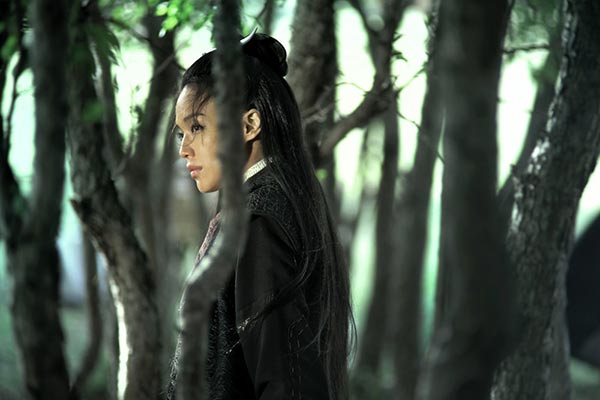No 1: The Assassin
 |
|
A screen capture of The Assassin. [Photo/Mtime] |
Hui Lang: The Assassin is a film that drives the audience. Everything's laid out in front of your eyes, and the film's excellence just kept blooming throughout.
Tan Fei: The images of Hou Hsiao-Hsien are the complete opposite of the speed-driven world of today. There were many long shots, focusing on the silhouette, back and shadows of characters. The still scenes were so quiet that the heart beats of actors were audible to the audience. Many scenes were blanked. Perhaps, in a day and age where commercial films are packed to the fullest, this film, with many serene scenes, wanted to tell the younger generation that thoughts, fights and conspiracies can also be portrayed against a calm and slow tempo. All of its images and lines point to a trendy term of today - mild on the outside and wild on the inside.
Huang Doudou: Hou Hsiao-hsien poetically filmed the happenings of the Tang Dynasty, and said what was in his mind through simple words. From the beginning to the end, this film is a concentrated reflection of the art of cinema in Hou's mind. In this day and age, there is no other film like The Assassin, so aloof in style that only attract a selected audience and its true companions.
In brief: Based on the late ninth century martial arts story, Nie Yinniang, the film centers on a female assasin named Nie Yinniang (played by Shu Qi) with a plot set in the Tang Dynasty (618-907). Nie was ordered to murder an official by her master, but her target turns out to be the only man she has ever loved. The film unfolds as Nie struggles with the order from above and her true desire inside.